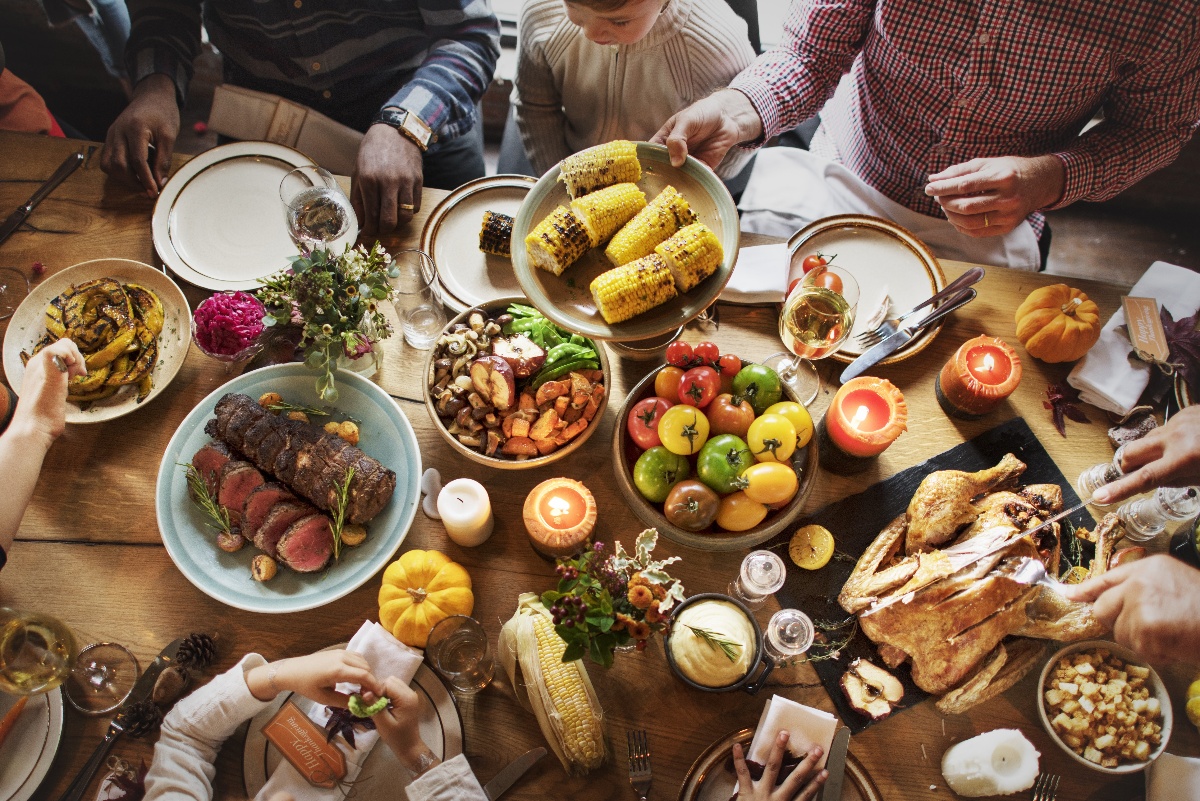
Thanksgiving is an emotional time. People travel thousands of miles to be with people they see only once a year. And then discover once a year is way too often. – Johnny Carson
Yes, Thanksgiving is right around the corner. For many, this thought is mixed with anxiety. As in, “oh boy, what will happen this year”?
Why does he always have to talk politics, knowing someone will be insulted? Why can’t we just get together, you know… to be *thankful*?
Oh the irony of a holiday called Thanksgiving that also somehow brings out the worst in a family. Why is this? And perhaps more importantly, what can we do about it?
Let’s take the “why” question first. Therapists often take a family history with the purpose of identifying patterns/processes (dynamics), where they developed and how they may repeat themselves in the family tree.
Behavioral patterns sometimes get programmed when we’re babies and we can carry that trait unconsciously for decades if not a lifetime. Others get handed down from generation to generation, just like the silver set. Here it is, on paper, the generational replay of addiction, or affairs or strife between siblings just as it was among aunts, uncles or grandparents.
Further, as children, we rarely have any perspective about what is going on in the family. We don’t realize that something is healthy or unhealthy. We just manage it as best we can, all the while imprinting the dynamic in our brain. Then we grow up and repeat the pattern: what we experienced in childhood gets reenacted in adulthood, often unconsciously.
Here we are twenty years later sitting down at the Thanksgiving table. No matter our accomplishments or professional growth, it seems we can fall right back into those familiar patterns without even realizing it.
Whether it’s sibling rivalry, politics or good old family dysfunction, we arrive at the Thanksgiving dinner with a casserole and a little armor in anticipation of the drama. We try to avoid last year’s debacle, yet the conversation inevitably takes a southward turn, everyone reaches for their old familiar roles and off we go again into yet another painful family holiday.
Here are a few tips to avoid the fray.
-
Start With a Thumbs Up and a Pat on the Back
The fact that you are reading this right now means you’re already being proactive and preparing. We’re beginning to realize that we cannot change others, but we can change our part of the pattern, and that awareness not only gives us another notch on the growth chart, but an edge in staying conscious and proactive.
-
Expect the Best, Yet Be Prepared
If you expect the best, you will be more positive, and your tension can be mitigated by relaxed energy. If something does happen that strikes a negative chord, take a deep breath and remember: “just because they were triggered doesn’t mean I have to”. “I have the choice to respond rather than react.'' More on this in a moment. For now, you might consider making a note and keeping it in your pocket on the big day, or send it to yourself in a text message.
-
Plan Ahead
Remind yourself that no one controls you, and likewise, you cannot control others. Just because the pattern is familiar (notice the root of that word), doesn’t mean you have to re-trace it every holiday.
What can you do instead?
- Go for a walk
- Help out in the kitchen
- Talk to another relative
- Or, phone a friend. :)
-
Avoid any Negativity
If you notice someone is starting to bait the hook with a negative comment, you just might be tempted to react. In this situation, it’s important to remember the difference between a reaction and a response. The latter will be a healthier choice. It takes a little discipline to override negativity (which is an addiction, BTW), but the effort and outcome of growth are well worth the effort. A response will get you more of what you want; e.g., to operate within your own value system rather than getting hijacked and reacting negatively.
-
Know your Brain
You have a brainstem and it does a great job of keeping you alive in the world. However, it’s not always reliable at distinguishing between real and perceived danger. Your snarky sibling is (hopefully) not actually dangerous. Therefore, you don’t need that cortisol induced fight/flight reaction.
If you find yourself getting triggered, do the following:
- Take a break before you react
- Drink a glass of water
- Go outside
- Take slow deep breaths
- Look up and imagine going 30K feet in the air till you can see the pattern clearly, and choose the healthy response.
- Congratulate yourself on taking a positive step.
-
When Conflict Does Happen
It's important to remind yourself that you’re not in charge of fixing this family dynamic. You are only in charge of how you respond.
Remind yourself
- That conflict is neither good nor bad. It just means we see things differently.
- That conflict is actually an opportunity to learn about another person’s perspective.
- The key to managing conflict is through curiosity.
-
Take Good Care of Yourself
Most importantly, excellent self-care is the best way to stay mindful through these “opportunities for growth”.
We hope these 7 Tips help you during this Thanksgiving and Holiday season. We hope you're able to stay present, in order to look at these events in a manner that is both curious and compassionate.
If you feel you're still struggling with family dynamics, or it's all just too much in these moments, consider therapy or a workshop. We're here to help!
Discover more about Imago with our Imago Professional Membership, Imago Professional Facilitators, Imago Professional Training and Imago Educational Webinars.
%20/images/Jeannie%20Ingram,%20LPC-MHSP%20-%20Imago%20Relationships%20North%20America.jpg?width=160&name=Jeannie%20Ingram,%20LPC-MHSP%20-%20Imago%20Relationships%20North%20America.jpg)
This blog post was written by Jeannie Ingram, LPC - MHSP, Certified Imago Relationship Therapist
Jeannie Ingram is a Licensed Professional Counselor, Coach, and Consultant. In her role as psychotherapist, she specializes in couples therapy as a Certified Imago Relationship Therapist and Getting the Love You Want Workshop Presenter. In workshops and in therapy, she helps couples move beyond destructive, painful arguing to improve communication, restore their connection, live and love in more positive, fulfilling, satisfying relationships.
Jeannie assists individuals who need help improving ineffective patterns or managing life transitions to find positive change or growth.
She has a Bachelors Degree in Psychology and a Masters in Counseling from the University of Alabama at Birmingham, as well as a Post-Baccalaureate Certificate in Marriage and Family Therapy from Capella University. Jeannie helps couples reconnect in her private practice in Nashville, TN, and through her Getting the Love You Want and Start Right, Stay Connected Couples workshops in the Southeast.
She loves cooking, writing, hiking, kayaking, and sailing. Most of all, she is dedicated to helping couples and individuals find joy, meaning, success and connection through the practice of mindful, purposeful living and loving.
Check out Jeannie's website: https://jeannieingram.com/



